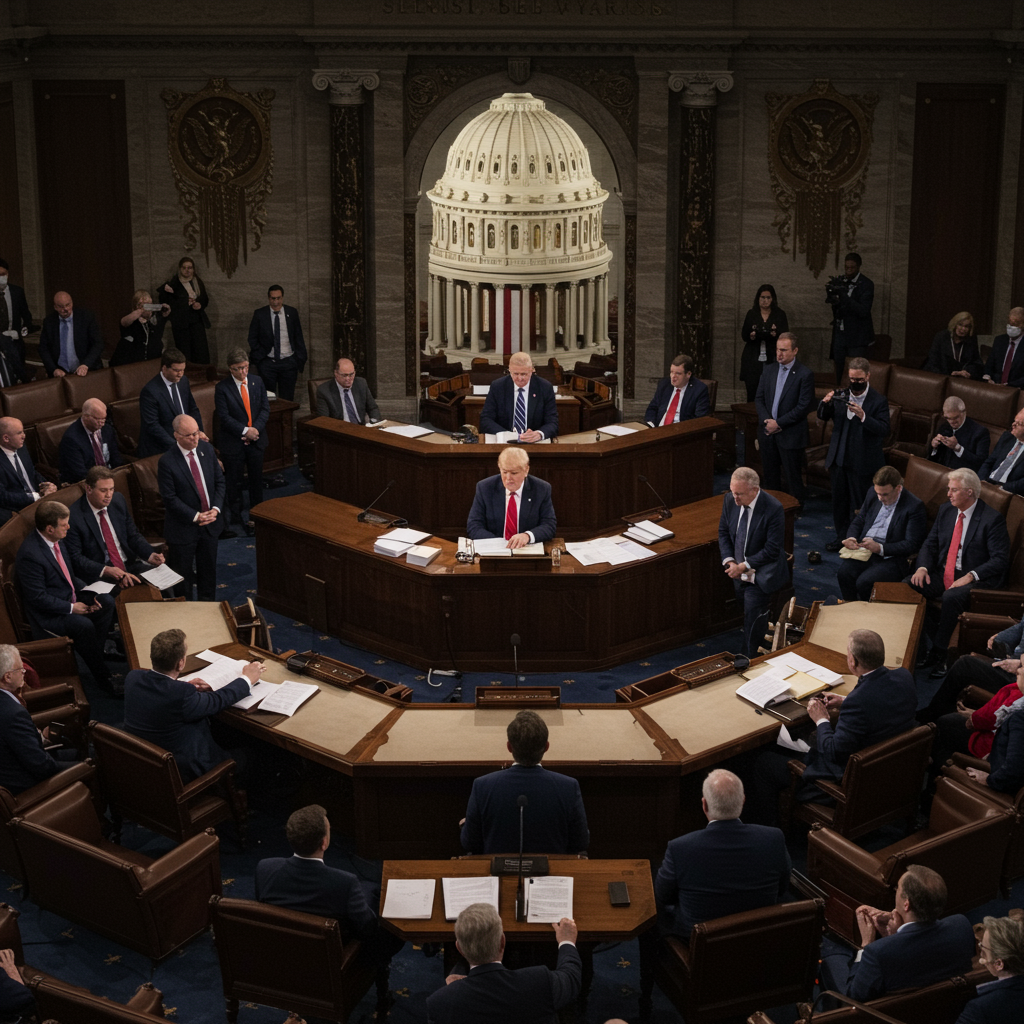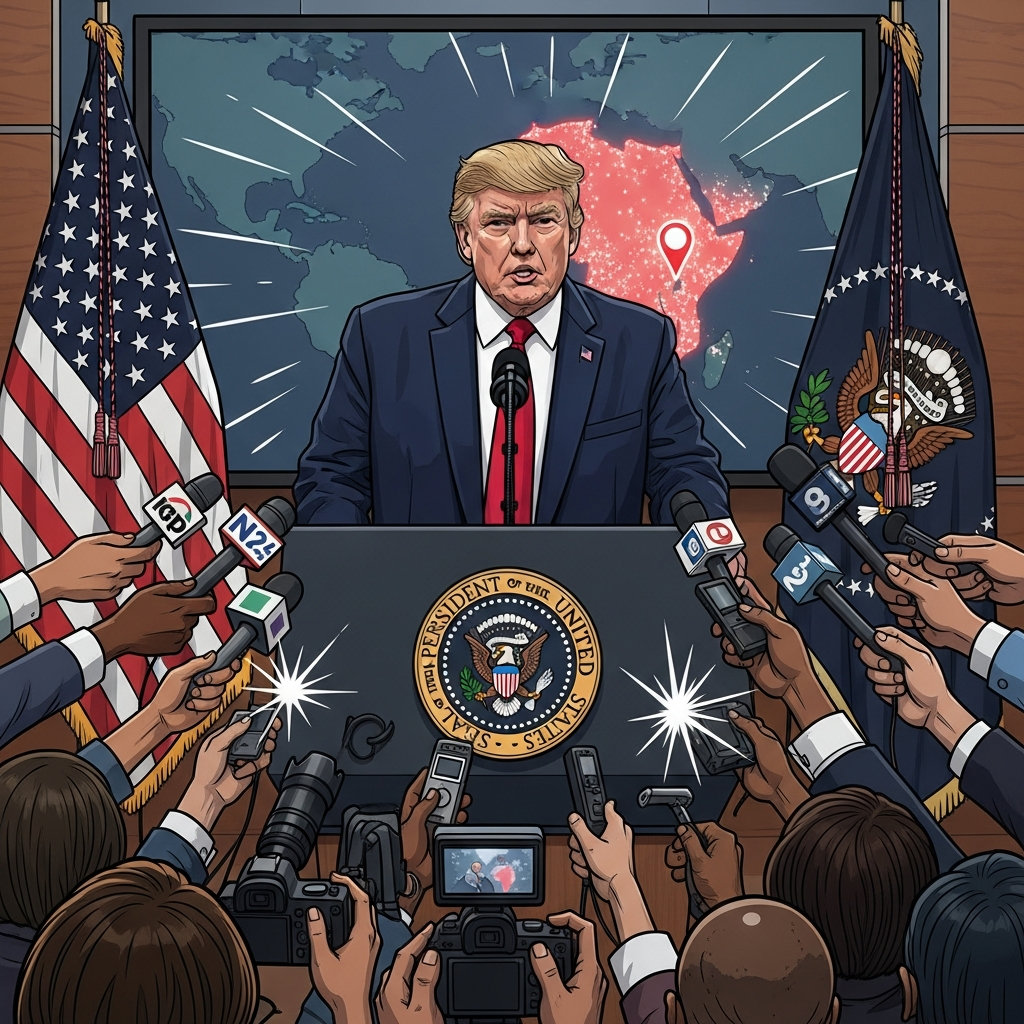President Donald Trump’s administration is engaged in a high-stakes scramble to revive stalled diplomatic efforts with Iran, following Trump’s decision to open a two-week negotiating window before making a final determination on potential military action.
The move sets off an intense, urgent push to restart talks that had faltered dramatically last week after Israel initiated a bombing campaign against Iranian targets.
Why the Deadline? Hope for Concessions Under Pressure
The hope within the Trump administration, according to US officials, is that persistent Israeli military pressure, coupled with losses to Iran’s missile capabilities, will compel Tehran to abandon its previously held hardline positions. This includes potentially yielding on core demands, most notably halting the enrichment of uranium – a key component for developing nuclear weapons.
This deferred decision also grants President Trump additional time to carefully weigh the significant potential consequences of a strike, including the risk of drawing the United States into a prolonged foreign conflict, an outcome he has repeatedly vowed to avoid.
Significant Hurdles Remain
Despite the new diplomatic window, achieving a breakthrough within Trump’s condensed timeline faces considerable obstacles. Iran’s consistent message since the Israeli strikes began has been clear: they will not engage in further talks with the United States until the ongoing Israeli operation ceases.
The US, meanwhile, has not pressured Israel to halt its actions. President Trump himself reportedly told Israeli Prime Minister Benjamin Netanyahu this week to “keep going.”
Adding to the challenge, planned high-level US diplomatic trips to the region, including one potentially involving Vice President JD Vance and Middle East envoy Steve Witkoff, never materialized due to concerns within the White House about the likelihood of diplomatic success. As of Thursday, no official US-Iran talks were scheduled.
European Allies Step In
Amidst the deadlock, foreign ministers from Britain, Germany, and France are traveling to Geneva for talks with Iranian representatives on Friday. These European allies have been briefed on the specifics of previous US proposals offered to Iran, which Tehran ultimately rejected before the Israeli strikes.
US officials expressed low expectations for the European meeting’s success, though a White House official kept the door open, stating, “The President supports diplomatic efforts from our allies that could bring Iran closer to taking his deal.”
European leaders view their talks as an opportunity to “take the temperature” on Iran’s willingness to find a diplomatic path, operating under the belief that military strikes alone are not a solution. They remain concerned about Iran’s retention of nuclear know-how and potential clandestine efforts, which military action might not fully dismantle.
Behind the Scenes: Military Planning and Internal Debate
While opening the door to diplomacy, President Trump continues to explore the military option. In recent Situation Room meetings, he has reportedly questioned advisers extensively about the effectiveness of US bunker-buster bombs against Iran’s underground nuclear facility at Fordow and the potential duration of such an operation.
However, his primary concern remains avoiding a multi-year conflict. Many close advisers, including figures like former strategist Steve Bannon, argue that military action would likely make a prolonged engagement unavoidable – a prospect Trump views with deep skepticism. Assessments regarding whether a strike would lead to prolonged US involvement are inherently predictive and, officials note, not entirely satisfactory.
Key Players and Allied Coordination
At the heart of the US diplomatic push is Steve Witkoff, the President’s Middle East envoy. Witkoff has engaged in direct messaging with his Iranian counterpart, Foreign Minister Abbas Araghchi, and the administration has maintained some communication channels despite recent tensions. Witkoff’s core demand in previous proposals, which the White House still views as essential, is that Iran must end all uranium enrichment on its soil.
Secretary of State Rubio is also closely involved, having departed early from the G7 summit. He has been actively consulting with his French, British, and European Union counterparts to “encourage a diplomatic path that ensures Iran never develops a nuclear weapon.” Rubio recently met with UK Foreign Secretary David Lammy, who confirmed the two-week window for a diplomatic solution.
US officials are also coordinating with regional partners, many of whom have offered to mediate. While Iran has responded to messages from these third parties, their core positions have reportedly not changed. Compounding the challenge, many US diplomats outside Trump’s inner circle reportedly lack clear guidance on the diplomatic efforts, making discussions with allies frustrating.
An Israeli intelligence official expressed dismay at Trump’s decision to delay a final determination, stating simply, “This is not helping.”
As the clock ticks on the two-week window, the pressure is on diplomats to find a path forward before the option of force potentially moves back to the forefront.


